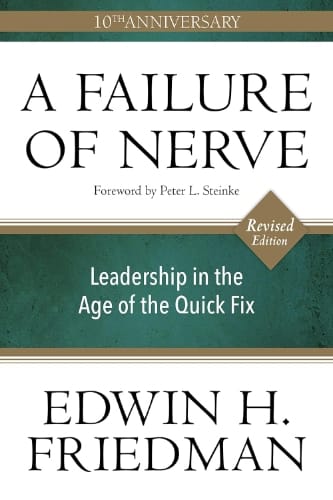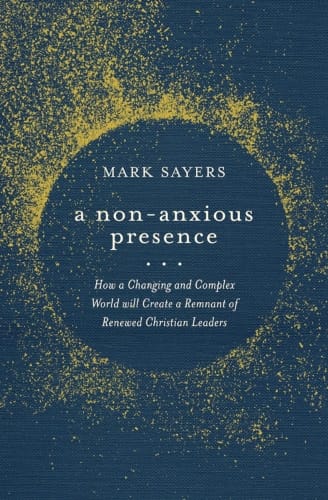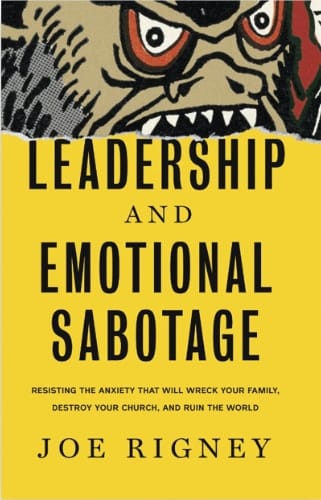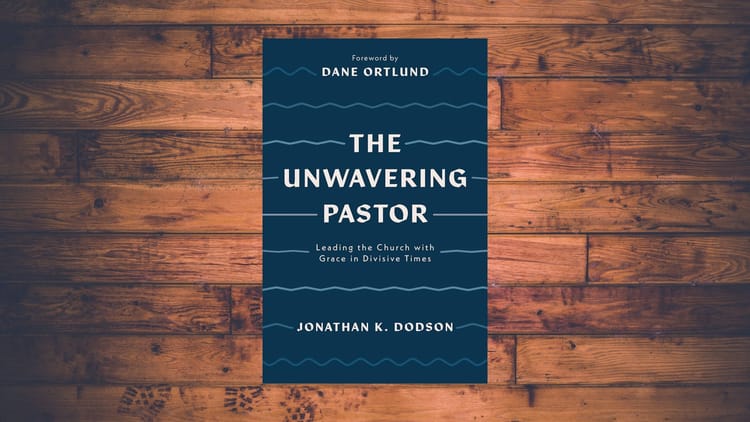A Jewish Rabbi, Emotional Sabotage, and Non-Anxious Pastoral Ministry

I met with a friend for lunch. When I mentioned the difficulties I encountered in ministry, he emphasized the significance of maintaining a non-anxious presence.
"What does it mean to have a non-anxious presence?" I asked. “Tell me more.”
It turns out he’d been reading Edwin Friedman’s book A Failure of Nerve: Leadership in the Age of the Quick Fix. In fact, he said it was the best leadership book he’d read. I picked up the book too and found it to be a helpful resource for pastoral ministry.

The Basics
Friedman was an ordained rabbi, family therapist, and management consultant. Despite his background, his book has become popular among church leaders. He based A Failure of Nerve on the Bowen systems theory of the family. His key ideas include:
- Crisis in leadership doesn’t come from a lack of information, skills, or techniques. It comes from a failure of nerve. In other words, leaders often choose safety and conflict avoidance over doing what’s right.
- Organizations and groups are emotional systems, just like families. Leaders must understand and navigate these emotional dynamics.
- Part of an organization’s emotional system is emotional sabotage: unhealthy behaviors that can often become patterns.
- Effective leadership requires emotional maturity, self-differentiation, and the ability to remain calm and non-anxious in the face of anxiety.
There’s lots more, of course, but these are the basics.
I found some of these principles helpful in my own ministry. I found it challenging to implement these concepts and to integrate them within a Christian framework. However, I did realize the essential role of courage in leadership, as well as the importance of identifying unhealthy patterns within the congregation and learning how to take a principled stand while maintaining meaningful connections with others.
I still have my dog-eared copy of A Failure of Nerve in my library, even after I purged most of my books.
Applying Friedman to the Church
I first read A Failure of Nerve in 2010. Since then, two books have helped to popularize his teaching for evangelicals.
First, Mark Sayers wrote A Non-Anxious Presence: How a Changing and Complex World will Create a Remnant of Renewed Christian Leaders in 2022. “Leaders who wish to be a non-anxious presence must keep their nerve and push through the backlash, sabotage, betrayal from friends and colleagues, criticism, and emotional pain, and keep growing toward the higher vision in a non-anxious way,” he wrote.

More recently, Joe Rigney has written Leadership and Emotional Sabotage: Resisting the Anxiety That Will Wreck Your Family, Destroy Your Church, and Ruin the World.

Rigney writes:
As much as I appreciate Friedman, his theology and anthropology are lacking in some significant ways. He advocates a form of process theology, and his commitment to evolutionary biology is apparent throughout the book. As a result, readers have to wade through piles of dodgy theology and evolutionary gobbledygook in order to get the good stuff. What’s more, Friedman tends to operate with a specialized clinical vocabulary that often requires translation into more biblical language. What Friedman calls “self-differentiation with a non-anxious presence,” the Bible calls “sober-mindedness.” What Friedman calls “reactivity,” the Bible calls “passions.” “People-pleasing” and “fear of man” are the biblical terms for what Friedman calls “herding.” And so on.
This book is my attempt to do justice to Friedman’s insights while grounding them in the Scriptures, and extending and applying them in the home, the church, and the world.
While it’s usually helpful to read the source material, Rigney’s book is a clear and helpful guide to applying Friedman’s concepts within a biblical worldview. I highly recommend it for pastors.
I’m grateful for Friedman’s insights. We live in an incredibly anxious age. Many approaches to leadership focus on finding the right techniques rather than on courage and wisdom.
Friedman has much to teach us. Whether you read A Failure of Nerve or one of the more recent books, I think you’ll find his insights helpful for pastoral ministry in an anxious age.





